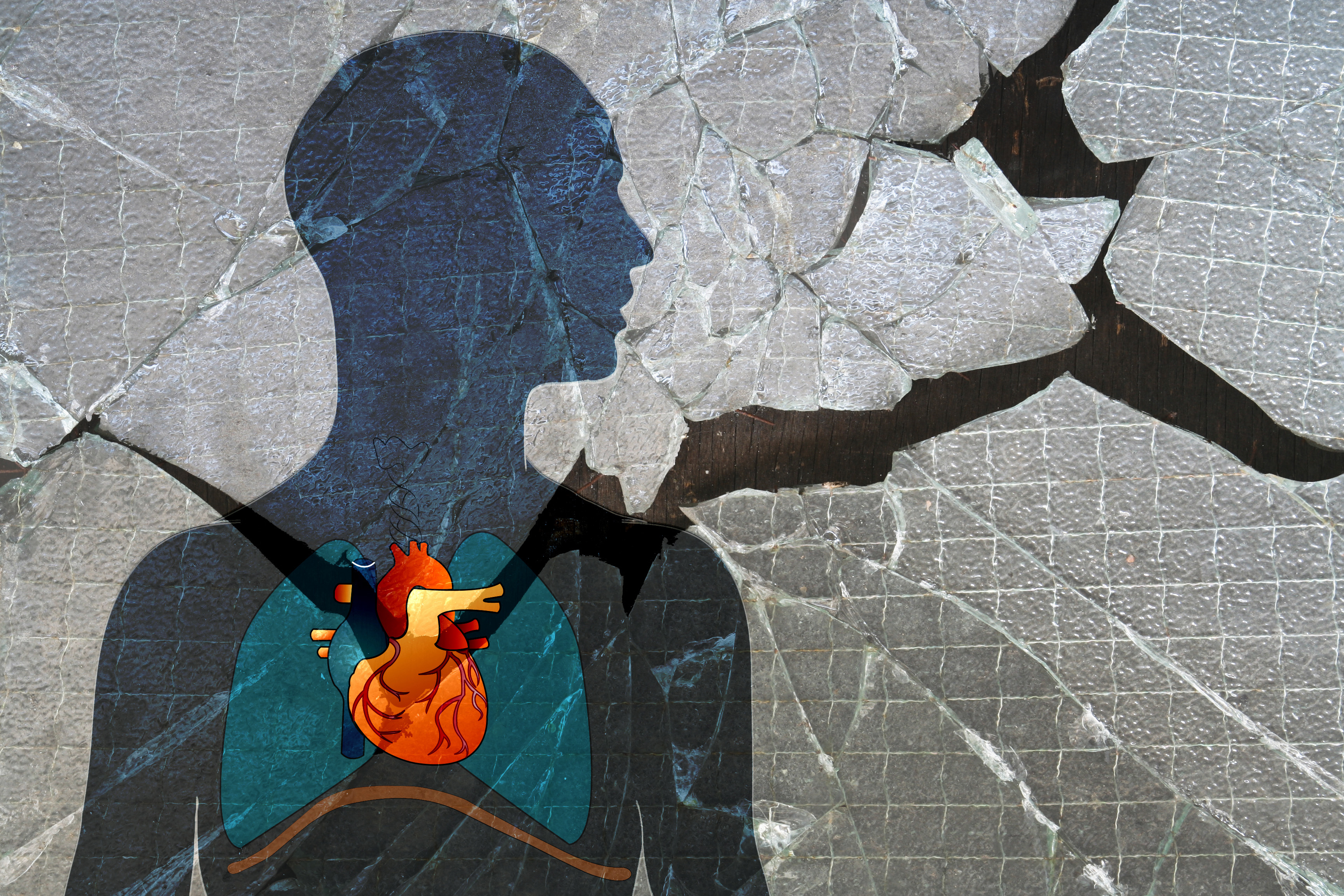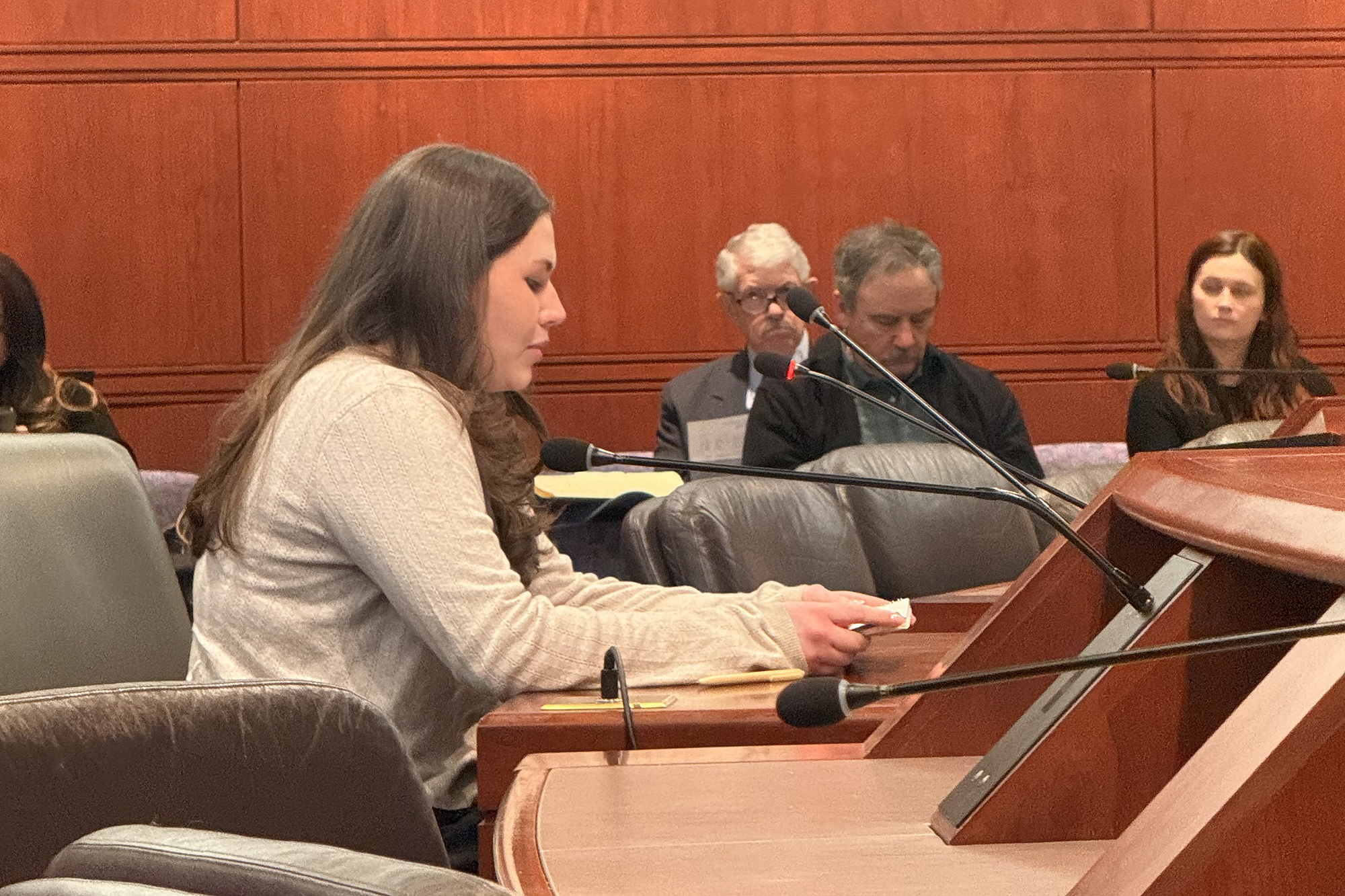With Valentine’s Day celebrations of love about to begin for many couples and families, UConn Today sat down with Dr. Sara Tabtabai, a cardiologist at the Pat and Jim Calhoun Cardiology Center at UConn Health to find out if someone really can experience a broken heart after the death of a spouse or loved one, and if so, what are the warning signs.
Q. Is Broken Heart Syndrome real?
A. Believe it or not, Broken Heart Syndrome is a real phenomenon. Also referred to as stress cardiomyopathy or Takotsubo cardiomyopathy, the syndrome has been more frequently identified since its original description in the literature. It is now thought to account for about 1 to 2 percent of patients presenting with what is initially thought to be an acute heart attack. The disease occurs in postmenopausal women in about 90 percent of cases. About 90 percent of the time, the disease is associated with an emotionally or physically stressful event, including the loss of a spouse or a loved one. The syndrome may also lead to a heart attack or stroke, or even a potentially deadly cardiac arrest. In rare cases, Broken Heart Syndrome can be fatal. It’s important to seek treatment for any heart attack or stroke symptoms right away.
Q. What causes the condition?
A. Broken Heart Syndrome is a condition that presents similarly to a heart attack. However, the mechanism is different than the traditional blocked heart artery that causes a heart attack. Although the exact cause is unknown, Broken Heart Syndrome is thought to be due to the release of stress hormones in the body, often precipitated by an emotionally or physically stressful life event such as a loss of a loved one. The result is a decrease in the pumping function of certain characteristic regions of the heart, as well as a release of enzymes into the blood stream that signal heart damage.
Q. What are the symptoms?
A. Similar to a heart attack, Broken Heart Syndrome can cause chest pain and discomfort. It can also lead to heart failure, the weakening of the heart muscle’s pumping function, which causes fluid buildup around the heart and in the lungs leading to shortness of breath and swelling of the legs. It is important to never ignore the symptoms of heart attack and heart failure, especially if you recently experienced a stressful life event. These symptoms can signal a true heart attack and occasionally Broken Heart Syndrome. If you experience these symptoms, seek medical care immediately.
Q. Can the syndrome lead to other health effects?
A. Patients with this disease can also develop heart failure, blood clots, stroke, shock, or abnormal heart rhythm. The good news is the heart abnormalities that develop are usually completely reversible, and most patients will experience relatively rapid recovery. In rare cases, the syndrome can be fatal. Death is usually caused by fatal heart arrhythmia or shock.
Q. How is Broken Heart Syndrome treated?
A. When a patient presents with heart attack symptoms, a cardiac catheterization is performed to evaluate for artery blockage and diagnose a heart attack. In patients with Broken Heart Syndrome, no blockage is identified. Ultrasound imaging of the heart, or echocardiogram, will reveal abnormal pumping function of characteristic regions on the heart muscle, aiding in the diagnosis of Broken Heart Syndrome. Treatment for those with the syndrome is supportive medical care. Medications to reduce stress on the heart, known as beta blockers, can be used. In most cases, the damage to the heart muscle is reversible in a relatively short period of time.
Q. What is your message to couples and families out there?
A. Do not ignore heart attack symptoms, call 9-1-1 immediately to be evaluated. A traumatic life event can trigger heart attack and Broken Heart Syndrome.
To learn more about the Pat and Jim Calhoun Cardiology Center visit: health.uconn.edu/cardiology.



